
Tales of climbing and mountaineering adventures have long been written, read and shared; stories of fleeting moments of fear, survival epics and questing on peaks unconquered. Our rich heritage of mountain literature has inspired climbers and writers of today to continue documenting experiences in the outdoors; extractions from the quotidian that often encourage us to reflect on life as we sharpen our political or philosophical beliefs and calibrate our moral compass.
With ample space and time to think, it's no surprise that the most captivating stories are ones that go beyond gear, grades and ego. Ideas and commentary on wider society permeate mountain literature. In this new series of interviews, we talk to prominent climbing writers about their reading habits between - or even during - routes and expeditions: focussing not only on the growing realm of mountain literature, but also on books in other genres that have informed their thinking and writing.
A big-wall connoisseur with a penchant for suffering, Andy Kirkpatrick was an obvious choice for a first interviewee. Author of Cold Wars and Psychovertical - both recipients of the prestigious Boardman-Tasker award - as well as numerous technical guides, including his latest 1001 Climbing Tips, Andy's writing has has been translated into multiple languages for publication around the world, alongside his popular and thought-provoking blog.
Having struggled with dyslexia throughout his school life, Andy's relationship with words is highly complex. In a lecture at Banff Mountain Festival last November, Andy talked exclusively about words, symbols, signifiers and how learning to read later than most had opened his eyes to knowledge and education. He joked about having written award-winning books despite not knowing what a verb is. Paul Pritchard - the only other author to have won the Boardman-Tasker award twice - was listening and also gave a lecture later on that day. Andy was present in the audience. One of the most memorable moments of the festival occurred as Paul gave an unexpected riposte to being categorised as a double-winner:
"Yes, I may have won it twice as well. But at least I know what a 'verb' is. It's a DOING word, Andy!"
Having spent over 200 nights on El Capitan, many of which were spent alone, Andy's self-confessed introspective nature has always guided him in his reading and writing; both on and off the wall. Here's what he had to say...
'Luckily I was one of the best at drawing in the school, so that stood my ego in good stead (the majority can read and write, but only the minority can draw the Millennium Falcon)'
Despite your dyslexia, you were determined to teach yourself to read. Do you remember how you did this?
I had a very low reading age until I was in my teens, in fact I couldn’t even read a comic (I got 2000 AD every week but only ever read the pictures), and was a great concern to my mum. People tried to categorise me, that I was somehow autistic or had some issue with my brain, when in fact what I was suffering from was undiagnosed genius (a special kind where I’m still unable to spell the word genius). This issue with reading and writing and telling the time and numbers, was due to several factors, such as being youngest in the class (I was moved up mid-term in primary school one year and kind of missed out on a year’s education), but most of all I was traumatised by the break-up of my family, more still the wrench from living in Wales next to the sea to a block of awful flats in 1970s Hull.
These days I would be defined as dyslexic, that I have a disorder, but really the disorder is that I could not be fitted into the system; the shape of me a logjam. It sounds like a cliché but most of the most successful people I’ve met were failures, dropouts and trouble, while those who fitted in simply slotted into the middle, but of course such a statement needs an agreement of what success is: what I judge it to be, or what society’s measuring stick does.
I began to read around the age of 13, which isn’t so strange as learning to read is very easy, all it needs is the will and the want and the need, which school kills in many kids. Ninety-nine out of one hundred people, if you put a gun to their heads, will do as you ask them, but one percent will take a bullet; it’s in their DNA. I was one of those kids I guess. I didn’t read because I didn’t want to, it didn’t interest me. I could not be arsed, like how a baby can bum shuffle and not walk until they really have to. Once I wanted to read, once I needed it to access knowledge I wanted, I did, and suspect you could teach most kids to read in a week.
'The ability to read, and through it to feel empathy and complexity was one of the greatest civilising forces of man; YouTube can only bring you so far.'
This is the problem, in that we confuse intelligence and wisdom and knowledge with education - education’s ultimate goal is to be as highly qualified as possible. A big thing these days is the attack on experts and academics, but I think this is a reflection on how the system has broken down, the animal nature of societies sniffing out that although qualified, these people do lack a wisdom to truly know the direction of the wind. Ask a taxi driver about Brexit or Trump and he’d have told you the outcome, while the statistician or analyst would not. I wrote quite a lot about how Brexit would happen and Trump and was derided for it, that “you can’t base your world view on anecdotes”, but it’s the little things, the tiny details, that win or lose the war of understanding.
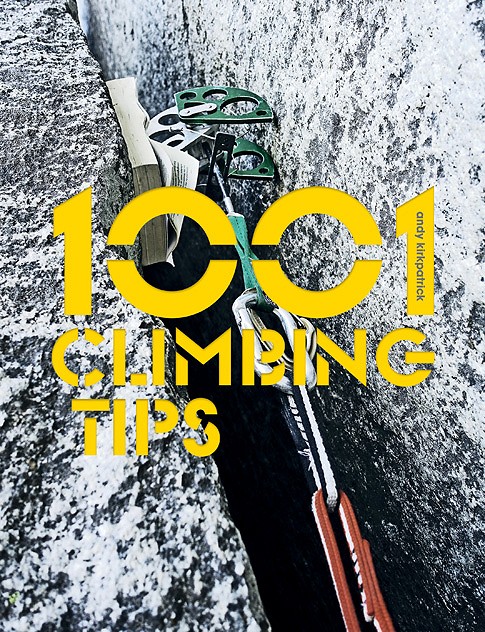
I’ve worked a lot in special schools (where all the doors are locked, and you have a 1:1 ratio of adult to child) and I always try and stress that the ability to read allows you to access all man’s recorded knowledge. When you see an alien touch a TV and suck in all man’s knowledge and know everything, well that’s no magic at all - we can all do it, but it just takes time. The ability to read, and through it to feel empathy and complexity was one of the greatest civilising forces of man; YouTube can only bring you so far. It has always been at the heart of man’s emancipation from all forms of slavery and dogma…but tell a 13 year-old that and they’ll still prefer YouTube!
Did you have any support in learning to read?
I had years of special lessons and so was identified as a ‘special needs’ kid or a ‘rem’ (remedial), but luckily I was one of the best at drawing in the school, so that stood my ego in good stead (the majority can read and write, but only the minority can draw the Millennium Falcon). School has an amazing ability to humiliate kids, to destroy their self-worth and value, something no amount of kindness and thoughtful labelling can fix. I see this with my own kids, my daughter Ella being an A+ student, while my son is not. When Ewen was about six his teacher told him, after the issue of his struggling came to her attention, that he was ‘as bright as a button’, to which he replied ‘but some buttons are grey’. I find that both tragic and magical. My education, like most who are not on the surface, was a long imprisonment.
What was the first book you ever read?
Beyond ABC books it would be James Herbert’s The Rats, which was the only book we had in the house (having a lot of books around in a home is important, one reason maybe that working class kids struggle more than middle class kids, their houses more often full of VHS and DVD boxes rather than books). It’s funny but I soon cottoned on that James Herbert wrote all his books to a template, the same style of everyman hero, a sex scene (which always seemed grubby, even to my young mind), a number of violent deaths described in detail, the small man against an unimaginable horror.
I were to have my own school I think the one of the best skills to teach would be pattern decoding and recognition, as seeing pattern and structure allows you to learn anything, from doing a bunny hop to running a business or living a complete life. My own ability at decoding helped me to learn how to write, like someone who can learn the piano without reading music, as you get a sense of what comes next, or better still, subverting the reader or listener’s expectations.
Beyond James Herbert, I read a lot of comics and film magazines (Starburst was a favourite). As I learnt to access information I became a voracious reader and would walk to town after school and sit in the library until it closed, reading books about films, war, history, but nothing academic. The only subject beyond art I was good at was history, the reason being I knew so much about wars, an early lesson that there was a huge gap between learning and actually wanting to know.
From the second I could hold a crayon I seemed to have a communicating mind, wanting both input and output, with a real thirst for data, pictures then later words, later what people said, later still what people did not say. It was like I’ve always been missing some vital information, the key to something, and still find it hard to do nothing (i.e. to have no data being inputted into my head).
I have a sub-par short term memory (that of a 6 year-old, I was once told after being tested!) but an amazing long term memory, remembering what I said, thought or what happened years and years ago. This comes in handy when you’re a writer as it allows you to unpack the data later on, to think about tiny events and meetings and develop these into stories. A story I wrote about meeting Chongo, a homeless big-walling mechanic living in Yosemite, that I read out at Banff this year comes from maybe sixty seconds of conversation, and yet can be unpacked in such a way to mean so much more, about his life, the nature of life, or nothing at all, just a blink of a life.
The only problem with such a brain is that it’s a heavy weight to always be carrying so much potential meaning, to be constantly introspective, maybe one reason why writers tend to be like farmers - a miserable bunch.
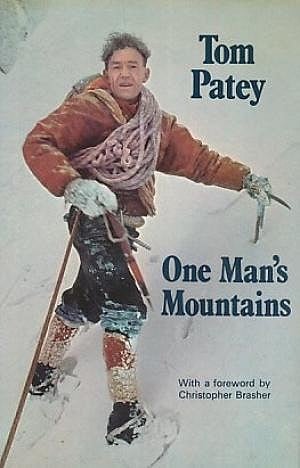
What was the first mountaineering or climbing book that you read and what is your all-time favourite?
Crap, I forgot this was about climbing!
It was either One Man’s Mountains by Tom Patey or Savage Arena by Joe Tasker. They were both in my dad’s spare room and when I’d stay I’d pull them down and dip in and out of them. He also had a really gruesome book on traumatic injuries, and I can still see the picture of a man’s groin skewered by a rhino. Joe Tasker made a strong impression as he wasn’t ‘posh’ like the people you imagined went on trips, which was liberating. The idea of two normal people getting into a van and driving to the Himalayas was mind - and suspension - blowing. It’s funny, but later on you end up meeting people like Bonington and Scott and realise they weren’t that posh, but simply gamed the system (which is what a ‘successful’ life is all about).
'Taking a leap is always rewarding, and like climbing, going into dangerous places always brings a change to the certain reality you leave behind.'
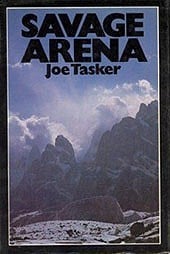
The book I’ve read more than once is Kurt Vonnegut's Slaughterhouse Five, a book that works on so many levels; a story much more than the sum of its words, a single paragraph or line like an invitation to think on. I guess it also includes sci-fi and war and madness, and is written in such a non-linear way that once read you can pick it up and start reading it anywhere. It’s funny but when Psychovertical - which is sort of non-linear - was translated into Korean it bombed as they have no tradition of such story-telling, people didn’t know what the hell was going on!
Fiction or non-fiction? Which do you find yourself reading more of?
Definitely non-fiction, I’m always trying to learn something new, and read a lot of history books. My favourite books are the ones that knock you sideways and change all your preconceived notions, that attack your own dogma and conformist thinking. The second the ripples set on an idea you need something weighty to rock your boat. The modern world is full of arrogant hubris and solid certainty, with anything that could undermine what you think not only rejected, but not even seen: in most things we see nothing but a stream of self-validation. An example of this is that I read a few Peter Hitchens books lately, which I found really stimulating and challenging. I’d always discounted him over his cooler and more rebellious brother due to him being a Christian - how narrow minded is that? In the end I felt that Peter was the real insurgent of dogma, just on a deeper and not so easily accessible level. Taking a leap is always rewarding, and like climbing, going into dangerous places always brings a change to the certain reality you leave behind.
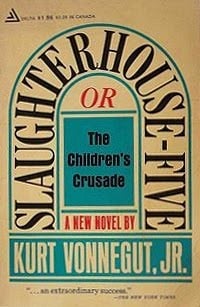
I used to be a Labour supporter and was a classic liberal, read the Guardian and the Independent (I’d buy the Indi as it said ‘independent’ at the top, and so thought myself somehow intellectually sophisticated) and I bought the Socialist Worker. All my mates were professionals (doctors, teachers, academics), and nice liberal ‘fair trade’ people. I’d lived in London during Brit Rock and so loved Tony Blair, even during Iraq etc., thinking that we had to trust him, but politics always confused me and any argument was one of instinct rather than knowing. I was a climber, I read climbing magazines, not newspapers, took my world view from the BBC. I was happy to take other people’s word when it came to my own opinion on anything, my betters, people like Billy Bragg or Bono, and just had a set of values that were imprinted on me, or were there in order to be part of the group, such as hating Thatcher, etc. Deep down I hated the rich or anyone posh, and tried to explain away success as coming from some kind of privilege or advantage. On the surface I was a kind person but underneath I was an ignorant drone, a supplicant, bound tight with chains of self-pity, envy and self-hate. I was like most people.
Then one day, the head of my kids’ fantastic liberal school refused the request from Muslim parents for their kids to have separate assemblies from the rest of the school (take a second to imagine if this was the request of fundamentalist Christians not oppressed Muslims). The result was a charge of racism and Islamophobia against this fantastic and soft and kind head mistress, suspension by the LEA, and then, after months and months, a forced resignation, the whole event covered by these same newspapers I’d always read. Here, right at the heart of this middle class community, where everyone thought like Billy Bragg, this fair trade world, I suddenly saw something deeply wrong. As this good woman’s life was destroyed, all our children’s schooling disrupted and hearts were made hard, no one did a thing, they stood by and let a good woman go to the wall for fear of being found guilty of some undefined sin. At the very same time the child sex stuff came out from Rotherham, which you could see from the top of our street, a horrific story where the police and local authorities did nothing for fear of being ‘insensitive’.
All these good people’s high morals and intellect and talk of community meant nothing in the face of intimidation by a single extremist parent, whose views on everything were opposed to theirs. A Nazi Germany lead to the death of 57 million people, but ask yourself how many of those Germans just stood by and let it happen?
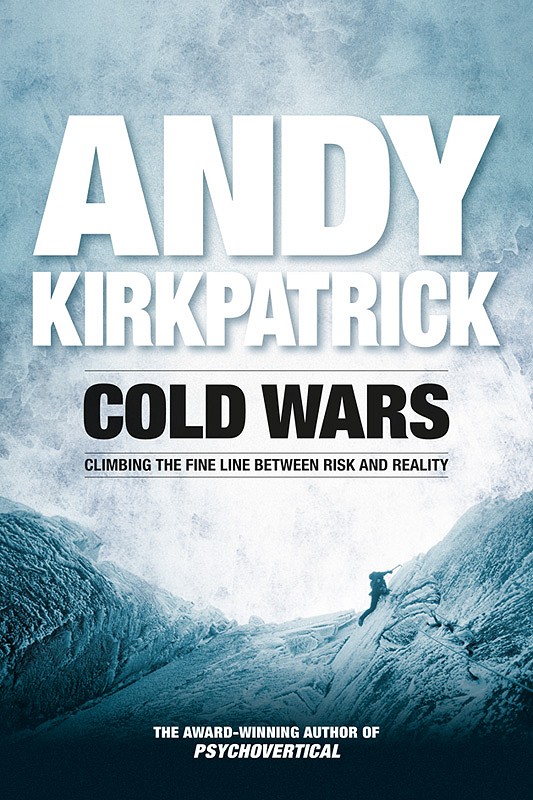
For me everything changed right there, from this very small event, I began to question everything that had been hard wired into me. I saw that it only took one extreme individual to manipulate a whole community of hundreds of good people, simply by the use of their very soft liberal nature; a soft intimidation that led to hard ends. It only takes an aggressive minority to oppress a weak and supplicant majority who just turn a blind eye to it. People’s free thought has become so twisted and confined.
After this event I sort of found the left I had followed had no real answers that made sense if you looked at the realities of life and human nature, that something was deeply wrong with everyone like me, that we were disarming ourselves and lived in some false reality. And why? Because we have to cope, it does not help to question things and while we laugh at stupid Christians and Jews and Muslims with their book of answers, we live in the same world of truth.
The only way to break my programming (Christ, I sound like a nut job) is to do what Chongo Chuck used to tell me, that I needed to ‘get educated’, which didn’t mean only reading or listening to what reinforced my programming, but also to what challenged it. I didn’t want certainty, but uncertainty. I wanted to know and feel and understand why honour killings or anti-abortion made total sense to some people, why Sharia law was the only way to free us, why Tommy Robinson formed the EDL, why, why, why. And in this process I wrote about this journey, I shared it, not because anyone might read it but to show I wasn’t a slave, I was brave, that I’d take that bullet in the head.
And the result? In a way it destroyed me, destroyed the me people thought I was, the person they’d invested in, the one they liked. People wrote ‘you’ve begun to smell funny’ or asked me to stop digging my own grave, sent me pieces from the Guardian to point out my errors, or suggested how I could get educated or get ‘back on track’. My work as speaker in schools and colleges and business kind of disappeared overnight, after all teachers and HR departments tend to be wired a certain way. It taught me a lesson of what happens when you switch side.
But I’d rather lie dead with a bullet where free thoughts once lived.
So the answer is yes, I read a lot of stuff way out of my comfort zone.
Who's your favourite non-climbing/mountaineering author?
It would probably be James Elroy as he’d be the author I’ve read the most. I like his style and the fact he’s such an odd bloke in real life. If you can, then listen to him on Desert Island Discs. His writing is harsh and brutal and sparse, but ultimately far more revealing than a more flowery writer, a man who’s as hard boiled as his words.
As for mountaineering, I don’t read that many climbing books, and think magazines had a much greater influence, with Victor Saunders’ story about climbing the Eiger in winter with Stevie Haston being one stand-out piece of writing (which I’ve used as a blue print ever since). There is such a rich history of good quality writing in climbing literature that we’re often spoilt, and so maybe if I had to pick one book it would be The Games Climber’s Play or Mirrors in the Cliffs (maybe I’ve got a short attention span). I often prefer all the stuff between the big events, rather than the big climbs (I’m a gossip I guess), so books like Learning to Breathe or Freedom Climbers are always fun.
And your favourite mountain literature author?
I don’t have one that jumps to mind, so I guess I don’t have one, but maybe some of Ed Drummond's writing from A Dream of White Horses still sticks.
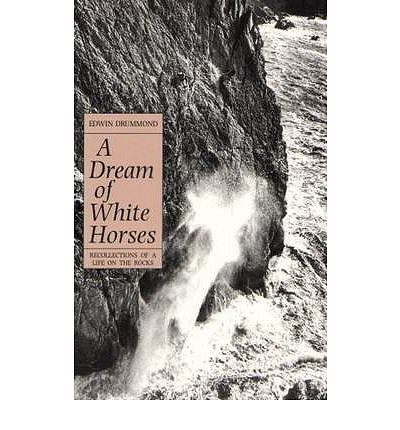
Where do you find the time to read with all the trips and travelling?
I read a lot on my phone, or when I’m having my lunch (I write every day when I’m at home), but it’s always bitty and I’ll have maybe ten books all going at the same time. For example, I’m reading:
Coming Apart: Charles Murray
The Savage God: Al Alvarez
Event: Philosophy in Transit: Slavoj Zizek
Letters from a Stoic: Seneca
Which sounds like I’m well read, but it’s more of an indication of my magpie brain!
'In climbing writing a light touch is needed in the wording of the environment around you, with more depth given to the personal and interpersonal.'
How do you prefer to read - proper books or e-books?
A real book is always best, but I hate parting with books while trying to own as little as possible, so e-books and the web are the main place to read things (but an e-book cannot be cut into pieces with your mates when you’re running short of books on a trip). I’m also a huge fan of audio books when travelling or training, although I need to be careful as my mind often drifts off as thoughts are triggered by what I hear.
Do you think being dyslexic makes you interpret books differently to non-dyslexics?
Words and the ability to both access them and then use them to express yourself is probably different, like how a man who’s had his dick shot off would view sex compared to one who hadn’t; that it’s a casual thing for one but something that consumes the other. Any kind of ‘handicap’ or rationing always makes the possession of what is withheld far more valuable. One reason people climb, is that on a big climb a cup of water or a slice of bread can become the greatest luxury you can conceive of.
This twisted relationship with words is a blessing and I think I treat words with a great deal more respect than most people do, they just pick them up and discard them as if they’re ten a penny, like they’ll always be there. Maybe also this is why I’ve become somewhat obsessed with language, freedom of expression, how we talk about ourselves, our history and culture, how words can be used to oppress and intimidate, and where that leads (I’d argue Brexit and Trump are a result of the oppression of words). Our thoughts are a reflection of what words we consume, so to really know who we are we need to know words.
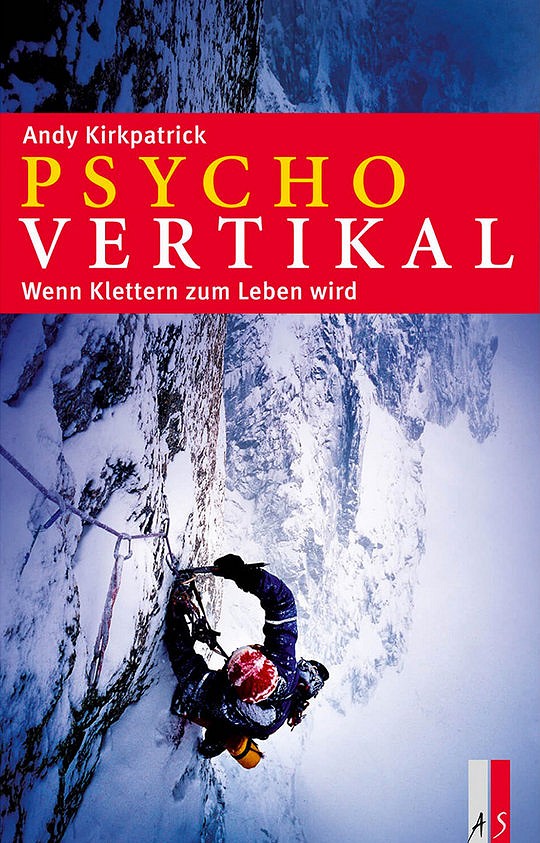
After maybe 20 years of trying to grasp the power of words I can now conjure up love and compassion and connection from the reader one day, then hate and anger and confusion the other, simply by what order and what words you string together - how cool is that! Beyond film and spoken word, writing has the ability to strike deep into the mind, soul or heart of the reader, something a painting can’t do. One day, people may imagine me a racist bigot because I use one set of words to hammer at another, then an ally the next, then discombobulating the day after that. If I was working for the Guardian or the Telegraph, then words need to be created like Big Macs, one flavour dispensed at every sitting no different from the last, tasty yes, no danger of biting down on something bitter or unexpected, a bit of Tory chew for someone or liberal layer cake for another, but who wants to work in the fast food trade? When you ask “Whose side is this person on?” or “What is he actually saying?” then you’re actually thinking, not just letting the words drip in and out of your ears like olive oil.
One thing I get a lot is “I read this blog I hated, but then I read it again and thought it was amazing”, which could mean I’m shit, but I’d rather think this is what happens when you write as an adult to another adult, like how you love the albums that soon become dull, but are unsure of the ones that really come to have real sustain - think David Bowie’s Low vs David Grey!
We evolved as a species through our ability to communicate, but this takes great skill, to either verbally argue your point (and opinion is made through the winning and losing of your arguments), or through stories you write (or sing or make into images that are static or move), not on forums, Facebook or comments sections. We live a life in a house of mirrors and writers who want their words to mean something, not just ones with stars on their uniforms, should use words that smash.
You say you think in images and have a vivid imagination.
Reading comics and being obsessed with films means I tend to think in images and write as if I’m watching a film, which creates a sense of pace, dialogue and drama. I love it when people say something made their hands sweat! I also use visualisation a lot when I’m thinking about climbs and work through ifs and buts, so that’s all there when it comes to writing. Saying that, in climbing writing a light touch is needed in the wording of the environment around you, with more depth given to the personal and interpersonal.
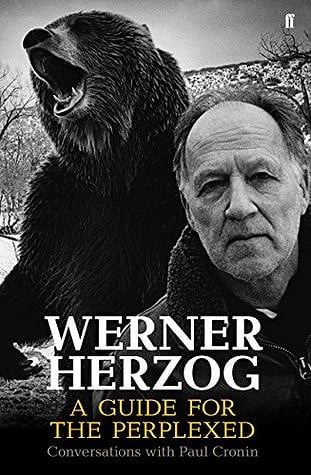
I don’t like anything too miserable, although Gulag Archipelago or If This is a Man can only put your own suffering into perspective. It seems like any book seems to be a good book when you’ve got nothing else, from highbrow fiction to books about giant killer crabs. The last book I really enjoyed on a trip and that led to a lot of conversations was Werner Herzog’s Guide for the Perplexed, and while soloing El Cap this year I read Robert Grave’s Claudius the God. Some kind of escapism is good.
To what extent does your reading influence your own writing?
When I did my year of art foundation, people always talked about not wanting to be influenced by other artists. I think it’s impossible not to pick some things up, but when it comes to the art it’s impossible to be anything but yourself. The reason is that the purest form of your art (be that writing, soloing, golf) is that thing people call flow, but what I think of as being trance; when it does what it does without any real control. Yes, people could read Flashman and write shit and write like George MacDonald Fraser, but this would be like copying a master, it’s forgery, not art. True writing is something supernatural, and once the words start coming they’re beyond real control by a rational brain. Yes, you can watch Saturday Night Fever a thousand times, and copy Travolta’s moves when you hit the dance floor, but soon enough his moves will be yours and yours alone.
'Paul Pritchard is a role model in many ways, a man who does not bend the knee to life’s cruel or intimidating reality (mainly because he can’t!)'
You frequently mention other books and authors in blog posts, for example?
I only do that to look like I’m clever! But I think it was Martin Amis (not read many of his books but love to read or listen to him talk about writing) who said you need to feed your mind words. The more you read the more you’re stimulated, the more you think, the more you want to write. I think the ideas that stem from reading are more important than style.
Which book on your shelf would surprise or shock us the most?
Probably the fact I have a lot of Bear Grylls books on my book shelf, in fact I’ve got them all! (but they actually belong to my fiancée Vanessa, who’s a massive BG fan). Joanna Croston from the Banff Mountain Festival saw me reading Extreme Ownership by Joko Willik (self-help/business book by ex-US Navy SEAL) at the breakfast table, which raised an eyebrow (it’s the kind of book you find in US Airport bookshops), but I was both enjoying the book as well as learning how you’d write a business/motivation book (I was looking for patterns).
What are you currently reading?
From my many on the go books, I’d say my main read is Weapons of Mass Instruction by John Taylor Gatto.
In which direction do you think mountain literature is heading?
Mountain literature seems to be very, very healthy, in fact I’d say it’s going through a renaissance at the moment, in no small part to Jon Barton at Vertebrate Publishing. Writers, especially climbing writers, need to try and fight against cliché, to try and tell stories with the same lightness and eye for detail as is needed to climb a big route, including the same skill, stamina and bravery to go beyond their safe grades. This interview is a good example: we could have a conversation that would be safe and easily swallowed in 500 words, but where’s the fun in that, where’s the blood and weight and gristle. We’re adults and I think books need to be written with this in mind.
There is also a huge history yet to mine, to find the truth behind the myths, say a proper no holds barred look at Everest south face for example, not just a PR version to fulfil your pre-trip book deal. I also think it’s vital that writers and publishers take risks, and that readers keep buying books!
What do you think people want to read about in climbing and mountaineering these days?
The same as ever, about people’s little dramas.
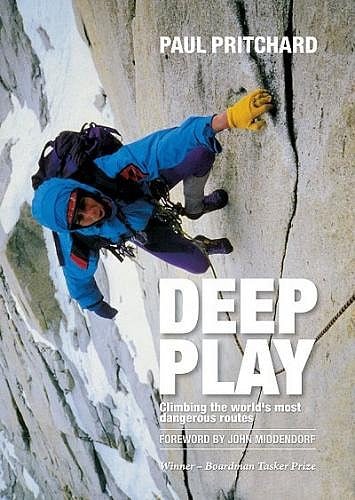
Total Alpinism sticks, as it’s so cold and dark and raw, like it was written by a Cato, not some Parisian alpinist. Paul Pritchard’s Deep Play was also important as it covered the period of climbing when I started, and Paul is a role model in many ways, a man who does not bend the knee to life’s cruel or intimidating reality (mainly because he can’t!) Feeding the Rat always stays with me as well.
Which climbing/mountaineering book should be adapted into a film which hasn't yet been?
There’s a story in Mirror in the Cliffs about Heckmair guiding Leni Riefenstahl then going to have dinner with Hitler. It’s one of the best short stories I’ve ever read, and a very subtle look at power and how it can control even the strongest of men.
If you could invite two authors to dinner...dead or alive, who would they be?
Primo Levi and Al Alvarez.
Desert island books - pick eight books that give an overview of your life with a short sentence describing why each one was important at each stage.
Oh God, I…
Alone at Sea by Hannes Lindemann. I got this as a PDF online and it is the story of a German doctor crossing the Atlantic in a kayak solo, and twice! Once in a dugout canoe, the other in an 11 foot folding canvas kayak and in the 1950’s (pre GPS of course). This remains one of the great testaments to human strength and endurance, and to how close adventure can be to insanity.
Slaughter House Five by Kurt Vonnegut. This is a highly complex book that mixes a war story (the bombing of Dresden), an autobiography and a time travelling sci-fi tale.
Atomised. A truly vile and horrible book, but one that everyone should read to the end. The structure of the book is fascinating, and it’s so stark and clinical and downright odd, like it’s been written by an alien. Like all the best stories, it’s only when you reach the end that you really understand the book, and what it is.
Che Guevara by Jon Lee Anderson. This book made me question the idea of cultural heroes. The book is so detailed and complex it destroys the icon and replaces it with the man; both a good man and a murderous and dangerous man, tied to an unworkable ideology, one that has no time for the living. I find it funny how he became an icon - it’s telling I guess - the same way it’s fine to wear Communist pins or t-shirts but not swastikas, when the former killed about a hundred million people in the 20th century. Since Anderson’s book I don’t hitch my wagon to anyone, and see someone like Obama as equally corrupted and dangerous as Putin or Trump, the reality more than a t-shirt.
The Better Angels of our Nature by Steven Pinker. Perhaps it’s a sign I’m getting old, but I don’t believe in revolutions anymore, that campaigns like Black Lives Matter or Twitter campaigns or new governments do any good, in fact I’d say they do more damage, and their ends are about nothing but power. This book gave me faith that civilisation is an organic process, that our better selves are our children, and their children.
1984 and Brave New World: I’ll stick these together as they are important and prophetic windows onto our age and need to be dipped into often (I love Orwell, and feel he was one of the most radical British writers of the 20th century, his life experiences and understanding of human nature freeing him of an ideological or academic view of mankind). One funny thing about Orwell’s 1984 is that it’s not actually that prophetic, only a well observed lesson in the reality of fascism, about control and truth that’s just more globally valid now as in 1949. If you’ve read it already then I’ll increase your chocolate ration by 20 ounces!
Lolita by Vladimir Nabokov. The master. If you want to write, read this, and if you want to write well then read it again and look at the code.
The Iron Man by Ted Hughes. The first book I ever remember being read at school, around the age of five. There is a weight to Hughes’ words that stayed with me forever.
Which one would you take to a desert island?
Slaughter House Five, as I could read it forever, although Che Guevara would be better for starting fires as it’s bloody massive!
Ok, you can take a luxury item too...what would that be?
A solar powered MacBook so I can write away my days on the island…or a Bear Grylls Craghopper shirt (so I could walk around pretending to be BG).
What's next on your reading list?
I’m very interested in how western society has eroded masculinity and the nature of the male of the species; the very concept of ‘being a man’ as valid now as the term ‘common sense’. I think this has created incalculable damage to men and boys’ self-identity, the feminising of men (and vice-versa) doing no one any real long term good. I know this sounds like some backward looking misogynistic claptrap, and I’m not saying that this notion is valid, but it’s stimulating, so probably The War on Boys by Christina Hoff Sommers.
- INTERVIEW: British Mountaineering Council CEO Paul Ratcliffe reflects on 2024 12 Feb
- INTERVIEW: Team GB Olympian Erin McNeice on her breakout 2024 season 11 Feb
- SKILLS: Push Your Grade: How to Climb Your First 7a Sport Route 6 Nov, 2024
- ARTICLE: Olympic Route Setter Garrett Gregor on Paris 2024 17 Sep, 2024
- ARTICLE: How did the Paris 2024 Olympic Games impact Sport Climbing Athletes' Instagram Followin 4 Sep, 2024
- ARTICLE: Meet the Paris 2024 Olympic Routesetters Part 3: Olga Niemiec, Boulder 4 Aug, 2024
- INTERVIEW: Meet the Paris 2024 Olympic Routesetters Part 2 - Martin Hammerer, Lead 1 Aug, 2024
- ARTICLE: Sport Climbing at Paris 2024: Schedule and How to Watch 30 Jul, 2024
- INTERVIEW: Meet the Paris 2024 Olympic Routesetting Team - Garrett Gregor 29 Jul, 2024
- INTERVIEW: GB Climbing Olympic Coach Rachel Carr on Paris 2024 24 Jul, 2024





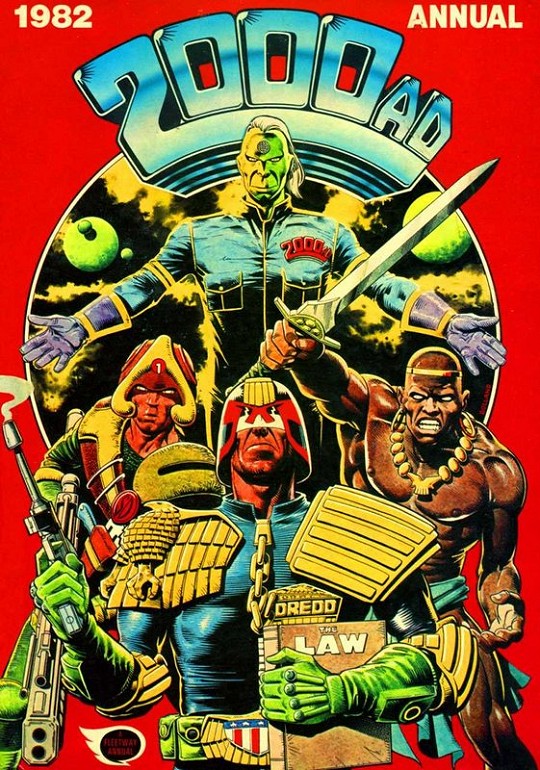
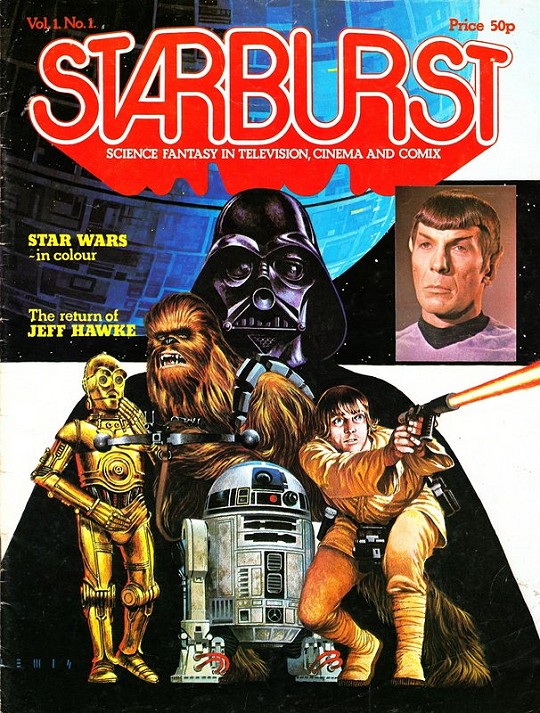
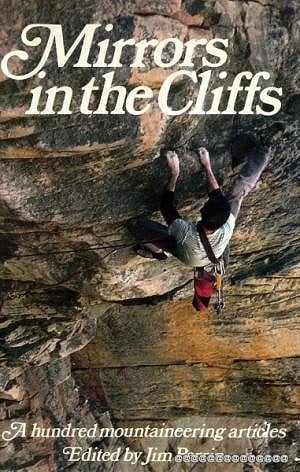
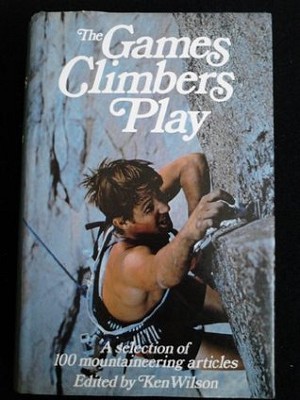
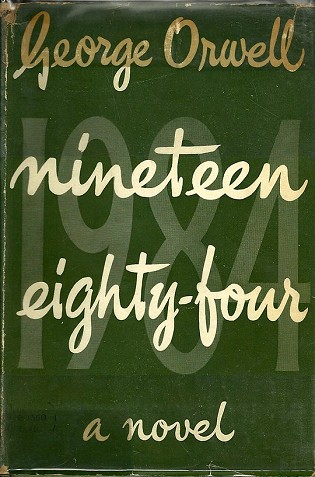
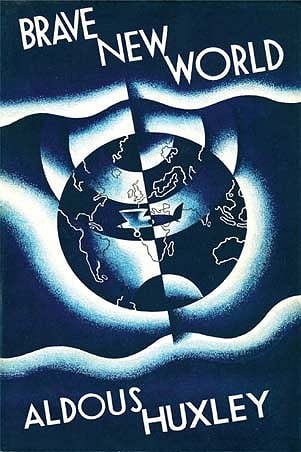







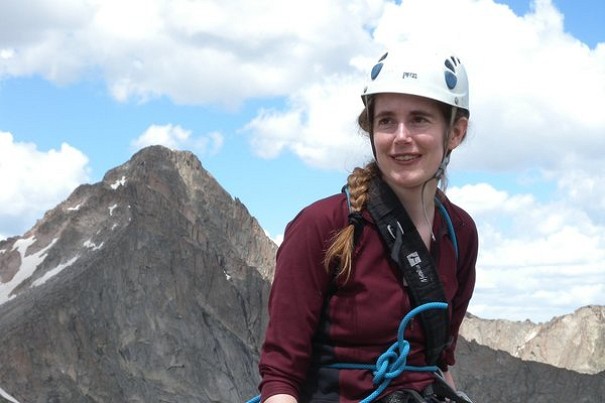
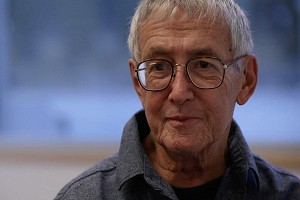
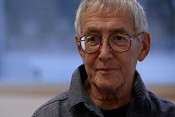
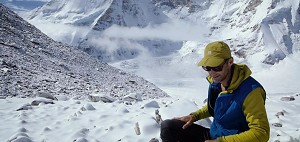

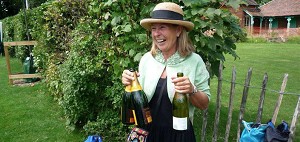

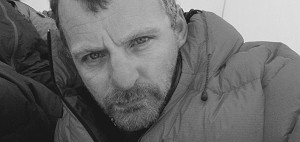

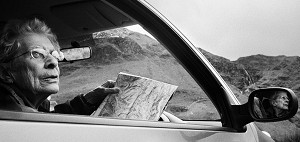

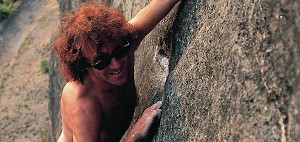

Comments